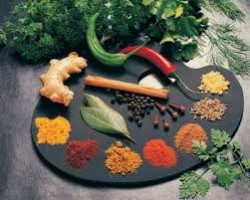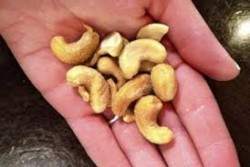
Mineral Depleted Soils and Foods
Modern intensive agricultural methods have stripped increasing amounts of nutrients from the soil in which the food we eat grows. Sadly, each successive generation of fast-growing, pest-resistant carrot is truly less good for you than the one before. A landmark study on the topic by Donald Davis and his team of researchers from the University [...]
Read More
Restoring Gut Health – Interview with Dr. Carolyn Dean
1. What, exactly, is gut inflammation? Is there a way to formally test the body (blood work?) to determine whether someone has inflammation? In Medicine gut inflammation relates to Crohn’s and Ulcerative Colitis, and they do biopsies to diagnose it. One blood test, CRP (C-reactive protein can be high in both, but higher in Crohn’s [...]
Read More
Magnesium and Nutrition
Conventional dietary wisdom suggests that by following a ‘healthy diet’ you’ll get all the nutrients you need to lead a healthy life while greatly reducing the risk for chronic disease. That is, in essence true. In a perfect world you’d not only be getting the 45 or so nutrients you need everyday, but in amounts [...]
Read More
Energy Boosting Foods
Complex carbohydrates like sweet potatoes release glucose into your system more gradually than refined carbs (such as sugars and white grain products such as bread and rice) which leads to a steady supply of energy. As sweet potatoes are high in fiber they not only boost your energy, but can assist with weight loss too [...]
Read More
Magnesium and Your Health
As is the case with vitamin D, if you don’t have enough magnesium, your body simply cannot function optimally, and insufficient cellular magnesium levels set the stage for deterioration of metabolic function that can snowball into more serious health problems. For starters, magnesium is critical for the optimization of your mitochondria, which have enormous potential [...]
Read More
Can Magnesium Make You Feel Worse?
Carolyn Dean, MD, ND – These days, more and more people are taking magnesium than ever before and getting tremendous benefits from it. However, a few people are wondering why it makes them feel worse. In about 1 out of 100 people there can be a shift in your symptoms that you don’t understand. Here’s [...]
Read More
Signs of Vitamin Deficiency
Fatigue, exhaustion and/or weakness, muscle aches, tingling, numbness in the fingers and/or mental confusion may not be due to pulling a few all nighters or going overboard in the gym with free weights. These are all signs of vitamin/mineral deficiency. For example – iron is responsible for building red blood cells, which move oxygen around [...]
Read More
Healthy Nuts – Bonnie Brost, RD – St. Mary’s-Heart & Vascular Center in Duluth, Minn
The American Heart Association recommends four servings of nuts or seeds each week. The U.S. Department of Agriculture soon will issue new dietary guidelines that are similar. A serving is a small handful, or 1.5 ounces, or two tablespoons of a nut butter or spread. For good health, the majority of fats in our diets [...]
Read More
Can Your Diet Create Magnesium Deficiency?
Dr Libby Weaver, PhD – Nutritional Biochemist and best selling author of “Accidentally Overweight”. From a dietary perspective, too many fizzy drinks (or carbonated water), caffeine, excess salt and alcohol can all lead to a decrease in magnesium status. Heavy menstrual periods and excessive sweating too can lead to a magnesium deficiency, as can prolonged [...]
Read More
Why Do We Need Magnesium?
Andrea Rosanoff, PhD – Nutritional Biologist and co-author of “The Magnesium Factor” explains that we all need magnesium in order to balance the calcium in our food and supplements(36-39). We also need it to change the proteins we eat into our own personal enzymes (2, 32, 34, 35) and our own protein structures (32) that [...]
Read MoreNewsletter
![]()

Want valuable information regarding the health benefits of magnesium, latest studies, expert interviews,videos and health tips? Enter your name and email address and you can start receiving valuable health information right away.
Featured On:








